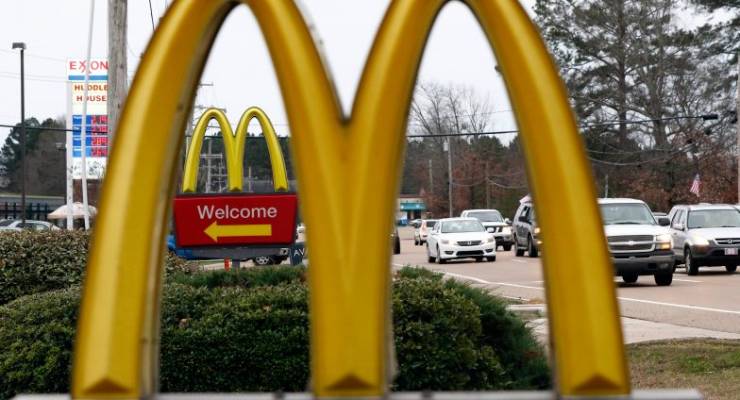
Here’s some surprising news: McDonald’s is very healthy. No, not like that. I mean in the business sense. The company has been booming, with a surprising lesson for all of us.
For about a decade, between the 2004 release of the film Super Size Me and the barnstorming growth of fast casual chain Chipotle during 2014, it was possible to believe the golden arches were crumbling. The world’s appetite for small, cheap greasy burgers had peaked and a future of organic quinoa salads was arriving — or so the narrative went.
Anyone still subscribing to that narrative should check their head: McDonald’s brought in salads, while Chipotle got E.Coli. McDonald’s released its results for the first three months of 2018, and the metrics positively glowed: the stock price rose 6% on Monday as the company reported profit up 13%. McDonald’s opened new stores around the world — in Germany, France, UK, Australia, Brazil, the Phillipines, Russia, and especially China.
China is a huge growth market for McDonald’s – they opened 300 new restaurants there in the last year – but the real backbone of the chain is still the US. where it has 14,000 restaurants and makes around a third of its revenue. And America is on the up and up.
It’s Australia’s fault
Australia can take a large slice the blame/praise for the rude health in which McDonald’s finds itself. McDonald’s uses us as a test market. The world’s first McCafe opened in Australia, for example, and we have more recently been a test-bed for their “Experience Of The Future” program.
EOTF, as McDonald’s calls it, is about remodelling an outlet with fewer brown tiles and stools bolted to the ground, in favour of café style lighting and neutral tones. The program also involves deploying self-ordering menu screens. If that doesn’t sound very new, it’s because we’ve had it in Australian McDonald’s for a few years now. But the modernisation is now rolling out across America, and producing a bump in sales wherever McDonald’s installs it. Which is in thousands of restaurants per year.
Australia is a prime test bed for the burger empire, one of the most McSaturated countries in the world. There is a McDonald’s here for every 25,000 people, twice the per capita rate of the UK, where it is one per 50,000; four times the per capita rate in Italy (one per 100,000); and 20 times the per capita rate in China (one per 500,000 people). Even America is only slightly ahead of us, with one McDonald’s store for every 23,000 people.
All that means McDonald’s has a committed following here from which they can quickly determine what works. McDonald’s CEO Steve Easterbrook spoke on Monday about what they’d learned in rolling out self-order screens in Australia first, like how to optimise the exact location in the restaurant that works best.
What’s the lesson for the industry?
Do we live in an era of unprecedented change? The answer is yes. But that doesn’t mean everything will change. Expecting big incumbent companies to be knocked off by young insurgent ones might just set a person up to be mistaken.
In the technology sector, a new company seems to roll to the top of the leaderboards every few years. IBM, then Microsoft, then Apple, Google, Facebook, Amazon. Along the way they’ve taken down media and advertising, taxis and hotels, not to mention a lot of retail.
It is tempting to take this model and apply it to other industries. But large parts of the rest of the economy are less ethereal, more concrete.
Brand, incumbency and even plain dumb real estate holdings can matter a lot more than they do in the technology space. McDonald’s is a great example. But many of the biggest companies — in America as in Australia — were household names five decades ago. Exxon Mobil and Johnson & Johnson remain huge American names, while BHP and Commonwealth Bank are big in Australia.
For many big companies, a few adjustments to a well-oiled business model is enough to keep them not just in the race, but well ahead of competitors. As the tech bubble hits fever pitch and promises of disruption grow ever more wild, it is well worth remembering this.








I believe that the McCafe wasn’t exactly a test by head office, it was an idea by the local store owner or manager as a reaction to all the local competitors, which became an approach to head office which was then permitted to proceed.
The store, BTW, is in North Sydney, & the rest is history.